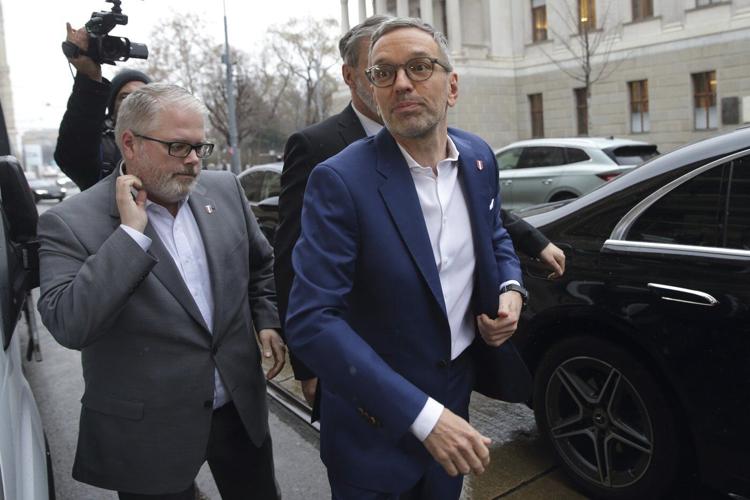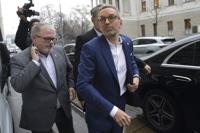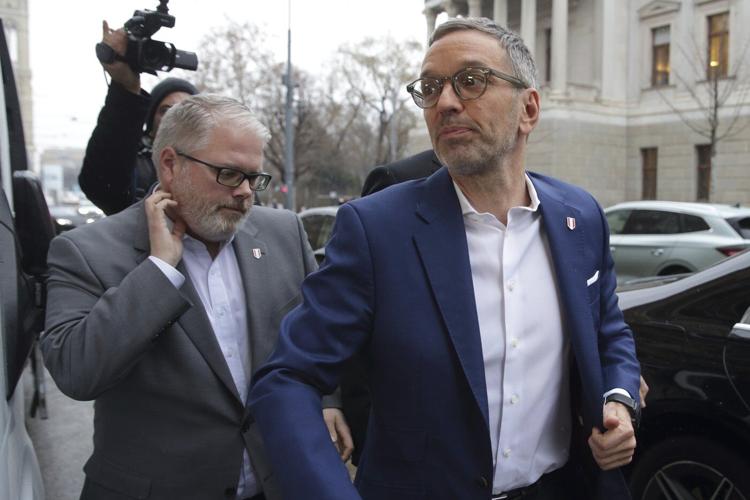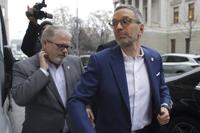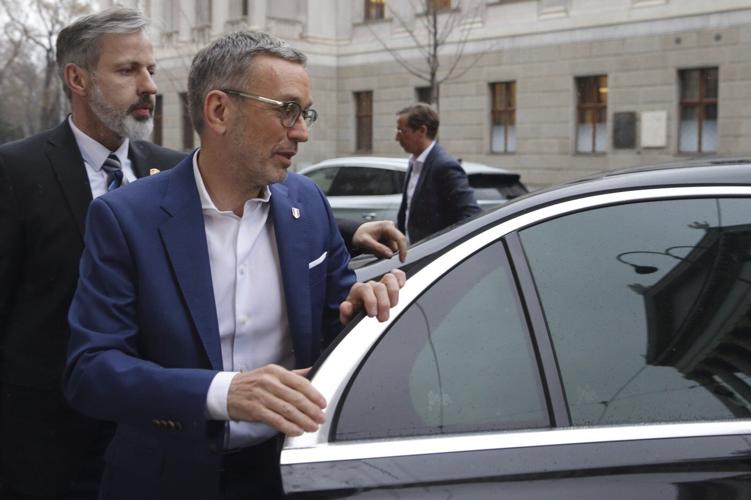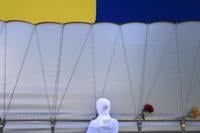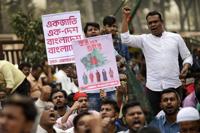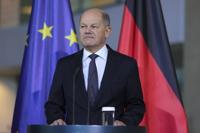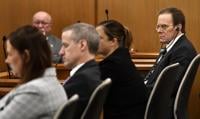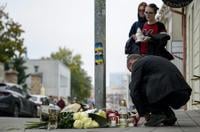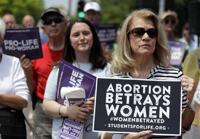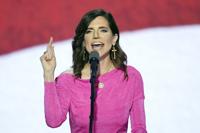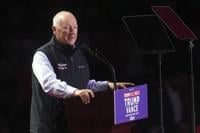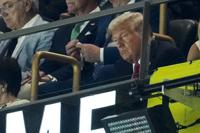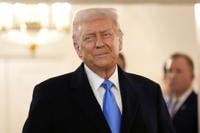VIENNA (AP) ÔÇö Austrian far-right leader Herbert Kickl said Wednesday that his talks on forming a coalition government with a conservative party have collapsed.
AustriaÔÇÖs president gave Kickl a mandate to try to form a new government on Jan. 6 after other parties' efforts to put together a governing alliance without his Freedom Party failed.
But his talks with the conservative Austrian PeopleÔÇÖs Party appeared increasingly troubled in recent days, with constant talk of policy differences and a clash over who would get which ministries.
On Wednesday, Kickl informed President Alexander Van der Bellen that he was giving up the mandate to form what would have been the first national government headed by the far right since World War II.
The announcement comes after several weeks of tense negotiations that have been marred with leaks to the media highlighting the lack of trust between the two parties.
KicklÔÇÖs anti-immigration and euroskeptic party, which opposes sanctions against Russia, won AustriaÔÇÖs in September. It took 28.8% of the vote and beat then Chancellor Karl NehammerÔÇÖs PeopleÔÇÖs Party into second place.
But in October, President Alexander Van der Bellen the first chance to form a new government after NehammerÔÇÖs party said that it wouldnÔÇÖt go into government with the Freedom Party under Kickl and others refused to work with the Freedom Party at all.
Those in the first few days of the new year and Nehammer resigned, making way for interim Chancellor .
Kickl pointed the finger at the People's Party for the collapse. In a letter to the president released by his party, he said that his prospective parties had insisted on sharing out the ministries in a new government before clearing up disputed policy points and they had been unable to reach an agreement.
ÔÇťI do not take this step without regret,ÔÇŁ he added. But he said that there appeared to be no point in trying to negotiate with the center-left Social Democrats, the only other party with which the Freedom Party could reach a parliamentary majority. It has refused to work with Kickl's party.
ÔÇťAustria has no time to waste,ÔÇŁ Kickl said.
It wasn't immediately clear what would happen next. Typically, that would be for the president to say. One potential scenario is that he will appoint a caretaker government while a more permanent solution is sought.
Peter Filzmaier, one of AustriaÔÇÖs leading political scientists, said that the negotiations had been turned into a ÔÇťbizarre drama on the public stage.ÔÇŁ
In recent days, the talks have been marked by ongoing disputes over the allocation of key government ministries, especially the Interior Ministry. Both political parties exchanged proposals, with every exchanged document immediately being leaked to the media.
The PeopleÔÇÖs Party firmly insisted on retaining control of the Interior Ministry. They reference the contentious actions of Kickl, who served as interior minister in 2018 when an illegal raid was ordered on the domestic intelligence agency. The Freedom Party remained determined to secure control of the Interior Ministry, asserting that migration and asylum fall within the partyÔÇÖs ÔÇťcore competencies.ÔÇŁ
A confidential protocol summarizing the state of ongoing talks was leaked over the weekend and has circulated widely. The document reveals insights into several demands from the Freedom Party, all of which have been rejected by the PeopleÔÇÖs Party.
The leaked information indicates significant differences between the two political parties, particularly in the areas of foreign and security policy, as well as their positions on the European Union.
At the beginning of coalition talks in early January, conservative party leader Christian Stocker had already established priorities for negotiations with the Freedom Party that the conservative party wants to see reflected in the distribution of ministries.
Stocker repeatedly stressed his partyÔÇÖs priorities in the course of the past weeks, saying that he wanted to protect AustriaÔÇÖs sovereignty and prevent undue foreign influence, particularly from Russia, preserve AustriaÔÇÖs role as a reliable partner in the EU, and safeguard liberal democracy.
___
Geir Moulson contributed to this report from Berlin.
___
A previous version of this story corrected the second paragraph to say ÔÇťwithout,ÔÇŁ not ÔÇťwithÔÇŁ the Freedom Party.

